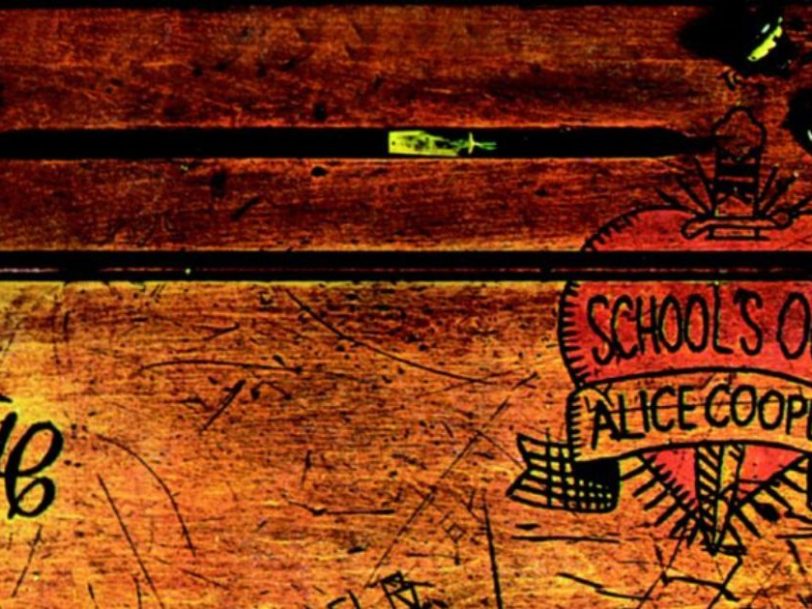Released in the wake of its hit title track, Alice Cooper’s fifth album, School’s Out, took the legendary Detroit shock-rocker and his band to a whole new level of fame. Peaking at No.2 on the Billboard 200 in the summer of 1972, the record yielded a platinum disc at home, but it also did brisk business abroad, breaking into the Top 5 of the UK album chart and effectively turning Cooper and co into global stars.
Listen to the ‘School’s Out’ album here.
“It’s just such a universal statement”
School’s Out will always be synonymous with its legendary title track, which came from Cooper’s desire to write a song with a universal appeal relating to what he believed to be the greatest three minutes of his life.
“There’s two times during the year,” the singer told Mojo. “One is Christmas morning, when you’re just getting ready to open the presents. The greed factor is right there. The other one is the last three minutes of the last day at school… You’re sitting there, and it’s like a slow fuse burning. I said, ‘If we can catch that three minutes in a song, it’s going to be so big.’”
In his quest to realise his vision, Cooper recalled the phrase “school’s out” from the Bowery Boys movies from the 40s and 50s. These films were based around the exploits of a group of streetwise New York City teens and their desire to rebel against both their parents and the establishment – issues which frustrated kids around the world understood all too well.




